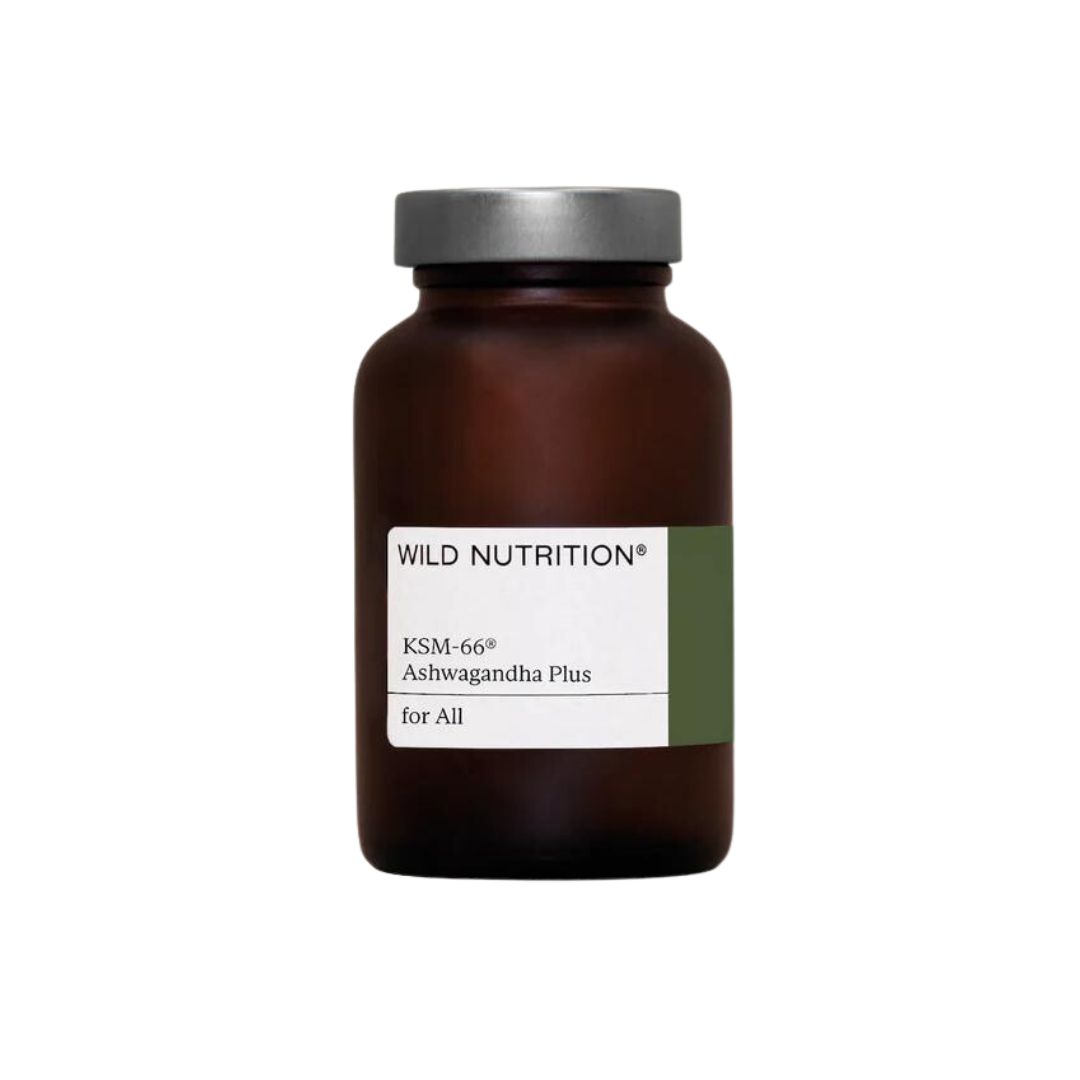Constantly tired but struggling to sleep? You might have high cortisol levels - 10 simple ways to decrease yours
Stressed out? We've got you.


There's a reason why searches for "how to decrease cortisol" are up on Google - we're a nation of stressed individuals, even if you don't realise it. If you’re spending your days perma-exhausted yet struggling to sleep when you do finally get to bed, it might be down to how much cortisol is coursing through your body. Enter stage right: expert-backed tips for lowering your body's cortisol levels.
Never heard of cortisol, or heard of it but not sure what it actually is? Cortisol is your body's main stress hormone and the chemical messenger in the body that signals to your brain to "get up and go." While everyone needs cortisol to survive, as this 2018 study highlights, too much cortisol has been shown to raise appetite as a result of false hunger signals, in turn leading to weight gain, not to mention increase your fatigue, irritability, stomach issues, and blood pressure, and lower your sleep quality and libido.
According to charity Mental Health UK, high cortisol levels might be impacting a lot of you. An estimated one in five Brits aren’t getting enough shut-eye, with stress levels higher than ever. And anyone who's ever lain awake for hours with a buzzing mind will know that sleep and stress have a bi-directional relationship. It’s the age-old conundrum – you’re shattered, but have a bad night’s sleep, and the never-ending cycle of exhaustion continues.
While some appear to thrive on stress, having constantly high cortisol levels can do more harm than good in the long run. Below, top experts share how exactly to both monitor and lower yours, no expensive hacks needed. Don't miss our guides to the subtle signs of stress, expert's go-to relaxation techniques, and how to relieve stress quickly, while you're here.
How to decrease cortisol levels, according to the experts
What is cortisol?
First up - a bit more on what the hormone actually is. “Cortisol is a hormone and a chemical messenger in the body,” explains award-winning coach and co-founder of The Midlife Mentors, James Davis. “It acts as a get up and go signaller for your brain, rising in the morning and stereotypically decreasing throughout the day. However, it's also one of a cocktail of hormones that fire as part of your stress response, so during periods of stress, cortisol levels can carry on increasing and remain elevated throughout the day.”
While you need a good dose of cortisol to be able to react appropriately to stressful situations (read: your fight or flight response), if too high for too long, it can impact key bodily functions, from sleep to sex drive.
“Cortisol plays an important role in various physiological functions beyond your stress response,” explains women’s health nutritionist Gráinne Quinn Jordan. "Released by the adrenal glands in response to perceived stressors or danger, it's essential for survival and helps to regulate metabolism, reduce inflammation, and assist in memory formation, too." That said, she goes on to point out that too much of it can be problematic. "In our modern lifestyle, stressors are more often deadlines than physical dangers," she adds.
Celebrity news, beauty, fashion advice, and fascinating features, delivered straight to your inbox!
How do cortisol levels affect the body?
Your cortisol levels are known to fluctuate naturally throughout the day as a response to your circadian rhythm and stress levels. But throw chronic stress into the mix and your brain can get confused. “The role of your stress response is to provide a mechanism to deal with a physical threat - to give us the best chance of survival when facing a threat,” explains Davis. “The issue is that your subconscious can’t distinguish between a real physical threat and something more intellectually stressing, like an email berating performance or an argument with a loved one, meaning the stress response activates in the same way.”
If your body is constantly in fight or flight mode with elevated cortisol levels, you're susceptible to both physical and mental health issues, from decreased immunity, to lower libido, to poor sleep.
“When cortisol is raised in response to a perceived threat, blood flow to the digestive system and reproductive system is limited in favour of a raised heart rate and increased blood pressure,” explains Davis. “Your immune system decreases, as does your pain sensitivity, and you also experience cognitive changes. Over time, the elevated cortisol also negatively impacts levels of your feel-good neurotransmitter serotonin, meaning you're more likely to become anxious and susceptible to stress.” Essentially it's a vicious cycle - the more stressed you are, the more stressed you'll likely feel.
10 simple ways to reduce your cortisol levels today
If you suspect that you’re running on stress, feeling constantly wired and unable to relax or, conversely, feel lacking in energy and unable to get going, it’s not all bad news. There are a number of simple steps that you can take to reduce cortisol levels, by addressing both physical and emotional stressors.
1. Focus on your diet
Interestingly enough, what you eat is key to maintaining stable energy levels and supporting regular blood sugar levels. If you're someone who has PCOS, this is particularly important, as women with the condition have a naturally increased level of cortisol and androgen.
Try this: Don't skip breakfast, if you can tell you're stressed. Instead, opt for a balanced breakfast that focuses on protein, healthy fats, and complex carbohydrates (Glucose Goddess hacks at the ready).
“Avoid skipping meals and include a protein source in each meal (think eggs, meat, fish, beans, tofu) to support sustained energy throughout the day,” recommends Jordan. “This helps mitigate cortisol spikes caused by low blood sugar. Including complex carbohydrates such as wholegrains and sweet potatoes, as well as healthy fats found in avocado and olive oil, can also stabilize blood sugar levels, supporting cortisol balance.”
Need more convincing? MC UK Health Editor Ally Head has been eating this way all year and focusing on an inflammation diet. She now swears by a savoury breakfast and balanced meals for fewer energy crashes and a stable mood.
2. Be mindful of your caffeine intake
It's all too easy to rely on a caffeine hit when you're running on empty, but if you’re constantly wired, our experts reckon it's worth switching to decaf or skipping caffeine altogether.
“Caffeine stimulates the adrenal glands, leading to cortisol release,” warns Jordan. “Aim to limit caffeine intake to one cup a day and avoid consumption after 12 pm to prevent stress on the body.”
3. Prioritise good sleep hygiene
While this might seem easier said than done when you’re running on empty, lack of sleep is a vicious circle, so all the experts we spoke to for this piece recommend honing in on your sleep hygiene. “Cortisol is closely tied to your circadian rhythm,” explains Jordan.
Try this: "Establish a regular bedtime routine, minimize screen time before bed as blue light impacts sleep hormones, and create a cool, dark sleep environment to support your body's natural circadian rhythm," she shares. Our guide to how to improve sleep and expert-approved sleep techniques might come in handy here.
4. Exercise mindfully
Exercise has huge mental and physical health benefits, from reducing anxiety and depression to helping you sleep better, but did you know? When it comes to high-intensity workouts, there is such a thing as too much of a good thing. HIIT workouts in particular have been found to spike cortisol levels, and overtraining can, too.
Try this: Incorporate low-impact beginner workouts, like Pilates workouts or morning yoga flows, into your routine and make sure to prioritise rest days, too.
5. Set boundaries
Boundaries are something of a buzzword for 2023, but did you know? They might just be vital for helping to decrease your cortisol levels. "Learning to say no can be a powerful tool," says Jordan.
Try this: "Aim to identify and manage stressful relationships or situations by setting boundaries where you feel able to," she advises. That said, it's important to be kind to yourself. Many struggle with setting boundaries, so don't berate yourself if you find it tricky. You're a work in progress - and that's ok.
6. Practice stress reduction techniques
Never heard of them? Stress reduction techniques in short entail anything that makes you feel less stressed, whether that's a long hot soak in the bath, cleaning the house, or meditating. "There are things you can do every day that help to lower your stress levels," says Davis.
There are active stress management techniques, too. "When faced with a stressful situation, pause, consider what you want the outcome to be, reminding yourself that you can choose your reaction," they advise.
Not sure where to start? Breathwork training is a useful tool. Try box breathing (inhale, hold, exhale, hold for four seconds each), which can help you step out of the fight-or-flight response and help you to nod off, too. Win, win.
7. Embrace mindfulness
Another effective way of lowering your cortisol levels? Aiming to be more mindful in your day-to-day.
“Incorporating mindfulness practices can help you to manage perceived stress, which in turn helps regulate cortisol levels,” says Jordan, who advocates a holistic approach to your mental and physical fitness.
Think about focusing on being fully present and aware during your day. You don't have to set aside swathes of time to practice mindfulness, rather, aim to carve out a few moments every day. Both experts stress that this can make a big difference in your stress levels.
8. Embrace nature
Forget full-on forest bathing (unless you're keen to give it a go - in which case, you do you), instead, focus on short bursts of time outdoors. One study from the University of Exeter found that even spending short amounts of time in nature is beneficial for your mental health.
Try this: Take a short walk during your lunch break or simply step outside for five minutes to do some breathwork. There are a whole heap of benefits of walking - walking workouts at the ready.
9. Be mindful of your screen time
"While it’s not always possible to avoid people that might raise your stress levels, you can reduce your exposure to other types of stressors," advises Davis. "Things like watching less news, cleaning your social media feeds of negative influences and spending less time on devices all help to manage stress and reduce cortisol."
Try this: If you know you're prone to doom-scrolling, consider setting some time limits around your social media use. See - putting those boundaries into practice never looked so easy.
10. Consider targeted supplements
Last but by no means least, studies have shown that the adaptogen ashwagandha can help to support healthy hormone balance and reduce cortisol levels. A staple in Ayurvedic practices, proponents believe that the root can help to calm anxiety and aid natural sleep.
While supplements won't single-handedly reduce your stress levels, when taken alongside other tips in this article, they could certainly make a difference.
Shop MC UK's go-to cortisol reducing aids now:

Journaling has been proven to reduce stress and boost calm. This one from Papier gets our vote. You can choose between lined, dotted or plain pages inside and personalise the cover with a name, fun title, or special quote, too. Plus, all notebooks are made from ethically sourced paper.
What foods reduce cortisol levels?
As above, if you're keen to know how to reduce your cortisol, one of the simplest ways to do so is by focusing on your diet. While no one food will lower your stress levels, focusing on meals and snacks that all include protein, healthy fat, and carbohydrates is key to avoiding blood sugar spikes and, in turn, raised cortisol levels.
This might look like eggs, avocado, and sourdough bread for breakfast, chicken, lentil and potato soup for lunch, and tofu, greens and brown rice for dinner.
As women’s health nutritionist Gráinne Quinn Jordan explains, this will support sustained energy throughout the day and help to mitigate cortisol spikes caused by low blood sugar, supporting cortisol balance.

Anna Bartter is a freelance journalist who writes about health, fitness and women's lifestyle for publications including Stylist, Metro and Psychologies, among others.
She's always on a quest to find a variety of fun and functional workouts that give you the most bang for your workout buck and she's passionate about championing movement for everyone's mental and physical wellbeing.

